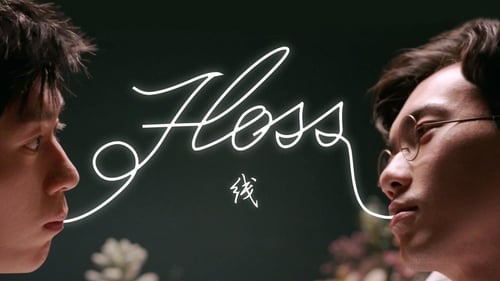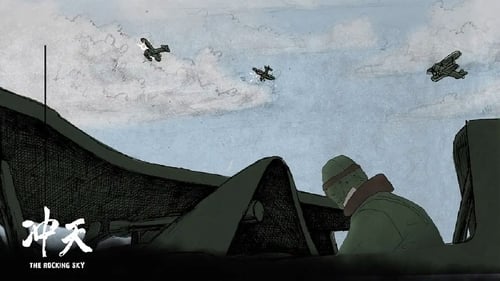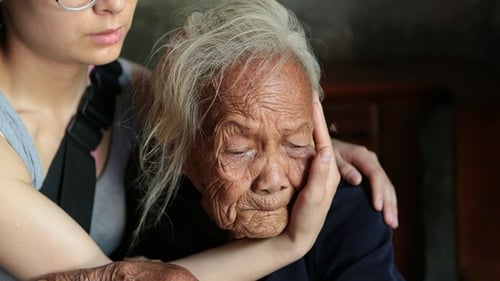
ティンは新しい恋人のマークの“歯”にフェティッシュなまでの強い性的魅力を感じていた。ティンはマークにこのことを打ち明けたいと思っているが…。

A soon-to-be first-time voter, the filmmaker’s thought-provoking journey into the Rust Belt and South captures four Asian American voters’ ardent first time grassroots political participation ignited by the 2016 rise of “Chinese Americans for Trump.” FIRST VOTE is a character driven cinema verité style film chronicling the democratic participation of four Asian American voters from 2016 through the 2018 midterm elections.

To commemorate the 70th anniversary of the victory of WWII, this documentary film describes the eight years of dauntless air-force fighting of the republic of China during the Anti-Japanese War, with only 300 combat-capable aircraft from China while Japan had over 2000.

Filmed over three years on China’s railways, The Iron Ministry traces the vast interiors of a country on the move: flesh and metal, clangs and squeals, light and dark, and language and gesture. Scores of rail journeys come together into one, capturing the thrills and anxieties of social and technological transformation. The Iron Ministry immerses audiences in fleeting relationships and uneasy encounters between humans and machines on what will soon be the world’s largest railway network.

In 1946, Heidi is entrusted to a Swiss family by her father. He will never come back for her. Today, François Yang questions his mother about her past. What follows is a journey to China, a quest to reconstruct memory. Through contact with her brothers and sister, Heidi measures the extent of the drama experienced by her family that remained in China, persecuted by the Communist Party.

A 17 year old boy from a village in the Sechuan province leaves for the big city looking for his father, who left 6 years before and has not been heard of since. The fact that his mother still receives money his father does nothing to tame his anger. He his not looking for a warm reunion, it is unconcealed revenge that drives him. Totally lost, he roams the big city with his basket of ducks on his back...

Coming back to her broken family, pregnant writer Huang Xiaoyu and her French husband, Benjamin, finds herself trapped between her cult brainwashed mother, Li Jiumei, and her secretly homosexual father, Huang Tao.

In 1994, the oil-rich city of Karamay in Northwest China was the site of a horrible fire that killed nearly 300 schoolchildren. The students were performing for state officials and were told to stand by while the officials exited first. After the fire, the story was heavily censored in the Chinese state media. To this day, the families of Karamay have not been allowed to publicly mourn their children.

A highway is waiting to go through a quiet village in Hunan, a province in central China where Mao was from. Due to the high cost of construction, construction companies and migrant workers who live on road work rush to here like the tide. In the following four years, they root in this strange place for interests, paying sweat and blood, even their lives. With their arrival, local village and peasants are forced to change their lives. Many hidden interest lines and hidden rules about road construction of the nation are unveiled, together with the shocking truth and emerging secrets.

Follow the lives of the elderly survivors who were forced into sex slavery as “Comfort Women” by the Japanese during World War II. At the time of filming, only 22 of these women were still alive to tell their story. Through their own personal histories and perspectives, they tell a tale that should never be forgotten to generations unaware of the brutalization that occurred.

Set in a quasi-ghost town that once thrived with oil in China's arid northwest, Yumen is a haunting, fragmented tale of hungry souls, restless youth, a wandering artist and a lonely woman, all searching for human connection among the town's crumbling landscape. One part "ruin porn", one part "ghost story”, and entirely shot on 16mm, the film brings together performance art, narrative gesture, and social realism not only to play with convention and defy genre, but also to pay homage to a disappearing life-world and a fading medium.

Xingxi travels alone to Alor Setar, a town in Northern Malaysia. As a consequence of a blown tire, she experiences three variant adventures. She introduces herself to people using different identities with mysterious secrets. In return, what the journey brings her is thoroughly unexpected. In the first adventure, Brooke is a traveler; in the second adventure, Brooke is an anthropologist; in the third, Brooke is a divorcée. She is a disheartened woman who comes across a French writer named Pierre. The two lonely travelers become instant friends. Their age gap enables them to have their respective insights into life and death. Meanwhile, it is not until the enigmatic side of Alor Setar begins to unfold that Brooke tells Pierre the true reason why she has come. They seek to understand the interaction between love and life. As the story comes to an end, mother nature shows her beauty with the magical Blue Tears phenomenon on prominent display.

A policeman investigates an introverted signal-station manager suspected of raping a hotel clerk.

The little-known Hunan Suining County is an ordinary but full of magical places. As the theoretical point of the rocket wreckage launched by the Xichang Satellite Launch Center, it has greeted the rocket wreckage from the sky dozens of times in the past 20 years since 1990. This mysterious and dangerous “out-of-town visitor” broke the poor and peaceful life of the 160,000 locals in the jurisdiction. 2008 is China's "Olympic Year" and "Aerospace Year." The people of Suining, like the people of the whole country, are looking forward to the Olympics to pay attention to the Olympics and are proud of the growing strength of the comprehensive national strength including aerospace strength. They also have to bear the fate of falling from the sky.

A young Chinese couple struggles to adapt to their new home and grows increasingly estranged from one another and from their surroundings.

Here is only one chance in life, and the way of education has a profound impact on the future of children; letting children go to school at home is a challenge and an experiment that does not allow failure... This film visits four families who have completely different backgrounds but also choose to teach themselves. Through the sharing of experiences between their children and their parents, it presents the appearance of the phenomenon of self-study in Taiwan today. Is the pursuit of the happy growth of one's own children contradictory to the hope that the children will become a dragon and a phoenix? What kind of learning environment should we prepare for children? How do families with different backgrounds and children with different qualifications choose appropriate education methods? What is best for children?

On May 12, 2008 , the biggest earthquake in Chinese history occurred in the film maker's hometown of Wenchuan. According to official polls, 69,159 were killed, 374,141 were seriously injured and 17,469 are still considered to be missing. The film maker's parents, central character in the film, are survivors. In a surreal hybrid of documentary footage, experimental abstraction and fictional elements, "On the Way to the Sea" studies the human fragility and spiritual homelessness generated by such disasters.

In northeastern China the Songhua River flows west from the border of Russia to the city of Harbin, where four million people depend on it as a source of water. Songhua is a portrait of the varying people that gather where the river meets the city, and an ethnographic study of the intimate ways in which they play and work.

This short film is dedicated to those who are dead during the lockdown period in Wuhan in 2020.















